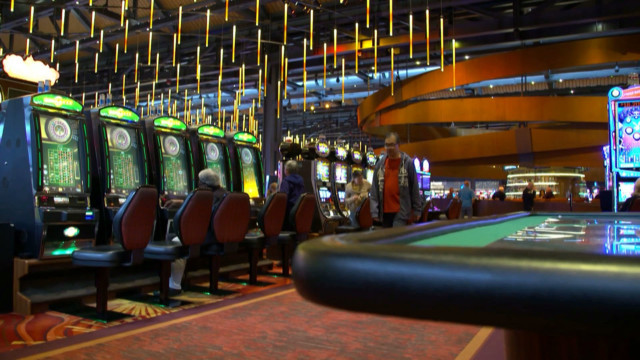As steel towns and so-called Rust Belt cities look for ways to overcome budget deficits, many jurisdictions are turning to casinos to restore lost jobs and tax revenues, which is a gamble that doesn’t always pay off.
CCTV America’s Roza Kazan reports. Follow Roza Kazan on Twitter @rozakazancctv

Bethlehem, Pennsylvania- a once thriving city, the headquarters of the Bethlehem Steel Corporation, which was at one time the second largest steelmaker in the U.S., employed 30,000 people in Bethlehem alone.
But when the plant closed in the late 90s and Bethlehem Steel went bankrupt, the city was on the verge of collapse.
So when Pennsylvania legalized casino gaming in 2004, and Las Vegas Sands offered to spend a billion dollars to turn the plant site into a casino-hotel-and-shopping complex, the city jumped in.
Unemployment is at 3.5 percent, below the national average. And The Sands takes credit for providing a catalyst for the city’s revival.
The casino employs about 4000 people and sponsors community events. But the casino-led urban development model hasn’t worked everywhere.
For example, Gary, Indiana, less than an hour’s drive from Chicago, was once a booming steel town. But its fortunes plummeted as global competition ravaged domestic producers. Jobs disappeared, people left and property values dropped, dragging down the city’s tax base. And even the opening of the two casinos in the late 90s brought little respite.
Here’s what Gary Mayor Karen Freeman-Wilson had to say about the impact of casinos in her town:
 CGTN America
CGTN America
